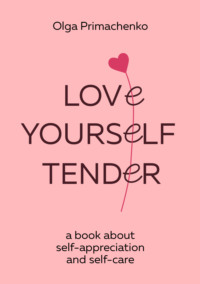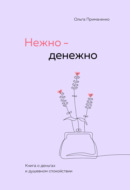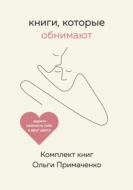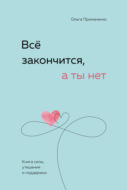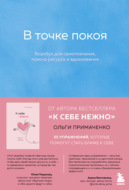Kitobni o'qish: «Love yourself tender. A book about self-appreciation and self-care»
The first tenderness, an introduction
…in autumn you realize: the greatest bravery is in being translucent like glass
All that fragility, lightness, signs of others' imprudent fingers,
The greatest generosity – is to gift inner warmth amassed,
True maturity – is in being able to trust, remember, be afraid;
It is customary in our lands to come back in autumn,
The time of absence has passed.
Ksenia Zheludova 1
Eight years ago, my life changed dramatically.
In the space of a month, I filed for a divorce, returned to my mom's home, and changed job. The first change hurt, the second one burned with shame, while the third one became an epic challenge: in my little cosy swamp, a rowing contest began.
I got lucky. I joined an editorial team that was going to create a start-up project for women on a major internet news portal in Belarus, TUT.BY, winning my place over a crazy number of other applicants. In the next two and a half years, I worked like Carrie Bradshaw: writing bold news stories about relationships. Those narratives, full of irony, banter, and reassurance, implied that I knew everything about men. When I met my future husband, I realized after a while that I knew nothing about them. My swagger was meaningless.
And it was precisely because when we broach the subject of real, living people, there is no absolute and constant knowledge, and every year spent side by side changes one's worldview. What seemed normal before, ceases to be so, and what was once perceived as a wonder, becomes humdrum. Conclusions and lessons of the past stop being treasured like a museum masterpiece, artifacts from your personal hall of military glory. Where once they served and protected you from harm, now they prevent you from moving forward.
Three years after my divorce (to the day actually) I got re-married. Some more time passed and my husband and I bought a house with a wonderful garden, and we moved from Minsk to the suburbs to listen to apples fall and grass grow.
We became parents.
I continued to write about love and relationships, but more and more often I felt like I was losing the thread of my topic, like sand slipping through my fingers, like it was asking me to leave it in peace. I came to the conclusion that I no longer want to write about love. Other worries seemed more significant, more poignant, and demanded more attention and strength. What is love for… what could I say? “If something changes, I'll let you know”.
I was tired of worrying about love. Tired of scrutinizing relationships, as if they were mistakes on a dictation assignment (do you pair words “family” and “home” with “want” or “have to”?), tired of thinking in perspectives (“Will you still love me when I'm no longer young and beautiful?”),2 tired of asking questions, the answers to which are unclear for me, but which I know already I'm still not going to like.
I realized that the only person who would never abandon me and whom I'd never have to dance around for – is me, myself, and I. I have no need to doubt my own desires, nor to prove to myself the truth about my own pain: for me, everything is exactly the way I feel it.
I can trust myself.
I can count on myself.
Nobody will ever love us the way we want – they will love us whatever way they can. Our dependence on other people and their changing moods doesn't make us happy – it makes us convenient. We are so used to adapting and acting as a buffer, to controlling our inner resentment and turning our anger into a silence that it inevitably leads to an explosion. The moment it all goes to hell is only a matter of time.
It is completely exhausting to think for others, feel for them, and predict their reactions. It is also quite useless: to live the life of others instead of doing something beautiful of your own.
It is boring and bleak to live in a world where your cheerfulness depends on how well you adjust to someone else's view of you. It is all right to end relationships and quit jobs that do not bring you value anymore or jobs that you cannot devote yourself to anymore either. It's not because it will be more exciting or interesting with other people or at another place, it's simply because here, at this particular place, it definitely won't be exciting or interesting anymore.
It is normal to be quite overwhelmed by the question (often put to celebrities) “What's your highest and most significant achievement in life so far?”. It's normal to look beyond the voice asking and quiz in return what right they have to ask; moreover, what have they done with their lives so far.
In the world where I celebrate myself, I no longer wait for someone to come and take care of me, I create my own joy. I take myself by the hand and lead myself to where I can feel the things I long for – the trustworthiness of “my people”, the taste of hot shish-kebab, or a sense of light-headedness after a fresh haircut.
In the world where I celebrate myself, I tell myself: I will get to this later, this will be done a couple of months from now, and this one I will never do, because for some things never is the best time possible.
Sometimes it seems like you are so used to being G. I. Jane that talk of some evanescent tenderness to yourself seems so illusory, like childish make-belief, that no one cares to tell you and if they did, you don't have time to listen. Yet I would like to take on this task and start this conversation, because in years of existence of the blog Gnezdo.by I have received a ton of letters from people telling me they're living at the very edge of their capacity, that they sleep three hours a day, work to the point of exhaustion, and take care of others until they themselves break down. None of these stories ended well. There is a point as to why there's a meme on the internet that says “No task is impossible, there are heart attacks at thirty”.
Let the time you spend with this book be an opportunity for you to sit down and get cozy; to listen to yourself and find out how you deserve to be treated and what treatment is unacceptable for you; to discover what you can accept and what not; what brings joy to your life, inspires, amazes, fascinates you, and what leaves you enraged. Listen to yourself, don't let anyone interrupt or devalue what you're about to hear.
Tenderness to yourself is always a journey, not just a strong-willed decision or a promise once given. This journey has no destination point on a map and will not lead you to a better version of yourself. Rather, it will lead you to a point where you refuse to play your own supervisor, critic, and judge, and choose to trust that you are normal.
This means exploring with kind curiosity all your “can-not”, “do not wants” and “will not do's” and not to go with the flow, or against it for that matter, but rather go where you need to go.
You are not eternal. No, really, you aren't.
Let me share all I know about tenderness to yourself and you decide the reason why this book has made it to your hands.
What will we talk about? About the right of each and every one of us to feel the way we do – and not be ashamed of it. About priorities, and what to do when others try to tell us how to live our lives.
About ageing and why it's not worth being afraid of it, and about money and mind patterns that prevent us from panicking and setting a fair price for our work and not feeling guilty for spending your own money on yourself afterward.
About how to celebrate life by having what we have and stop believing that you are not good enough, or wrong, or that you must fix yourself immediately.
We will explore the topic of tenderness to your body: how to stop fighting for it and with it and how respectfully to accept its story. We will take a look at the material things around us. It cannot be underestimated how a place that reflects us can be a source of support and help.
And, of course, we will talk a lot about how to interact with the world coming from a principle of tenderness to yourself: to assert your right to think differently, to stop playing games like “guess what I'm thinking” and “guess what I mean”, and to start asking what you need, to protect what's important, to say “no”, get closer or further away without hurting each other, and always to remember context.
I will tell you about the value of “your own pack” and – kind-mirror people. I will share some principles for getting organized in informational chaos. These principles are based on being mindful of your heartaches and will tell you the miraculous effect that settings like “Mute” and “Cancel subscription” can have.
At the end of the book, you'll be offered a challenge of tenderness to yourself. 31 days of tasks and practicals that will help you to get to know yourself better, dot the i's and cross the t's and find out what you will get out of it.
I am not one for conjuring up castles in the air. I am only going to talk about the things I have tried and lived through myself. For sure, my experiences are not universal and shouldn't be viewed as instructions to live by. Listen to yourself, note when words that you read awaken familiar thoughts (“Oh, it's the same with me!”), but search for your truth yourself. Believe me, you can't miss it, something like a car's parking sensors will start to beep inside you, louder when you get to the core truth.
Ideas are like seeds: if you will feel that what you've just read causes itching and tingling then it means that the seed has fallen on prepared soil and will soon start to sprout. If you like what grows, hug yourself and celebrate. If you don't, then don't take misfortune close to heart. Remember that even if an attempt falls through, it doesn't necessarily mean it was all in vain.
I wrote this book so that you would be able to open it on any page and feel your shoulders start to relax, your breathing become easier and your head gets lighter.
And tenderness towards yourself will fill your body up to the brim like a warm wave.
The second tenderness. Feelings
You bring him a little tenderness in the palm of your hands
Putting them together like a little boat;
He giggles and slaps your hands up from below;
No, it doesn't hurt, why would it, no,
Something like this will not impair;
And yet the tenderness is shattered beyond repair.
Ksenia Zheludova
My needlecraft teacher at school was a big fan of Louise Hay3 and instead of explaining to us how to make our rows of stitches straight, she would send us to the fitting-room one by one, to sit in front of the mirror and repeat one hundred times looking at yourself “I love myself”.
We were thirteen. We knew nothing of love and even less of ourselves. So, all the assurances that you just need to “love yourself” – and your belly fat along with pimples will magically disappear and boobs grow larger – seemed senseless and odd.
Many years would pass before I would start to understand at least a little about love. Before I would be able to rid this word of all the superficiality attached to it, of all literary clichés and other people's stories associated with it. Before I would discover what it is like to lose someone, stay all alone, or be the one to leave first. I would yet find out what it is like when your world begins to shrink and starts weighing you down and you begin to feel dead on the inside: how wonderful it is to have you all; what a pity that I don't need any of you.
Many more years would pass before I would begin to understand the concept of self-love, start accepting my own feelings and naming my fears; before I would start saying “I am afraid” when I was, instead of playing a tough-looking heroine with her knees trembling under the table.
Age really makes a lot of things easier
To be precise, it is experience that we accumulate as we age
We understand our parents better when we become parents ourselves and feel the burden of having to take care of our family, especially when the money runs short and a job is nowhere to be seen.
We understand that a child's worldview and the worldview of an adult are two completely different Universes. So, instead of getting stuck in the hurt caused by people from the past and viewing yourself as a victim, it would be more tender to yourself to just accept what never had a chance to happen, to shed tears over what you did not get, mourn what wasn't lived through, and finally close the door on trying to find all those why's. Memory can lie to us and skew the facts. You may keep a grudge against someone who had no intention of hurting you, because “they gave you everything they could, and what wasn't given – that was not available at all”.4
In my opinion, it is very important in every person's development, to cut the phrase “I feel so because…” to “I feel so. Period”, and to try to find as many ways as possible to support yourself in the here and now, in the conditions and with the person you live in right now.
Feelings are neither ugly nor wrong
Tenderness towards you begins by giving yourself permission to feel everything you feel, regardless of what other people think, and not breaking those feelings down into good and bad categories.
Elizabeth Gilbert once wrote on her Facebook page5 that if we are feeling joy then it is truthful and real to us, same as our sadness, same as our love for somebody. No one will win if we try to convince ourselves that we're feeling something different. There is no better way to become whole than to live your own truth. By choosing less, we will be choosing something unfit for ourselves.
If you are feeling sadness then that's what it is for the moment, and there's no good in denying it.
You have a reason to feel the way you do: maybe something has upset you, maybe you have lost something (money, relationships, a possession, inspiration, your weekend plans, the love of your life), and you need to live through that loss, grieve and adapt to a change.
Grieving does not mean wearing black, inconsolably sobbing, and never leaving the room. To grieve means allowing yourself to acknowledge your loss. There's no way of knowing how long it will take you, but if you try to stop yourself from living through it, then it will definitely take longer than it otherwise would.
If this were the case, tenderness to yourself would mean reconciling yourself to walking around for some time with pockets full of sadness. It will pass when it can. It is okay, it won't kill you and for certain will not make you worse.
With that in mind, try not to lure yourself into “worrying for the sake of worrying” – in other words, panicking about whether we're all right just because we felt the “wrong reaction” to something: maybe we got jealous, glad of a friend's bad luck, upset or just sad and started whining – as is the current trend – rather than being proactive.
We are sad when we find ourselves unable to spread “positive vibes” the whole time. We are pained to admit that there are things that will always trigger us, which means that we will always react in the “wrong” way, not as we would wish to react, but rather coming from our personal well-being and whatever strength we have at that moment. Just so we're not reduced to tears on the spot.
This is a reality, so please breathe in and out and come back to yourself as soon as you sense you are starting to feel worried about the “appropriateness” of your feelings. You are all right, your worries are on a par with the moment. You do not have to be ashamed of them and try to feel different.
It's not scary to feel hate even once for your loved one – It's scary to not allow yourself to feel anything towards him except for love.
Feelings are always about “now”, and not about character. If you are feeling angry, it does not say anything about the kind of person you are but it might say a lot about what is going on. Perhaps, someone is breaking into your personal boundaries or denigrating something dear to your heart. Or maybe you feel overworked and your body has switched into red-alert mode, perceiving everything within your sight as a threat.
The same goes for fear. If you're afraid, it doesn't mean that you're a coward. Your feelings just overrule your thought process and you feel threatened before you can explain what is going on. There is a good saying for it: if something feels wrong, then it probably is.
If you're hungry, exhausted, or tired, don't expect Buddha-like calmness from yourself when you come across mess that your children have made. Your anger won't be proof of your bad character, it will only be a signal that right now you are at a low point.
Whenever we burden other people with hopes they cannot live up to, we face a conflict of expectations. A newborn has no idea that mommy needs some sleep. A husband cannot read his wife's mind and therefore cannot possibly know what she is keeping silent about. It is pointless to expect support and sympathy from a friend who is known for being critical. They all do what they do, not out of spite, but because they do not know better. It is not that they are bad, it just shows that something is wrong with our expectations (I would like to highlight that: expectations, not us).
Now, it is quite different when you are being told how exactly you should feel, or when you are judged for your reaction to something. “How can you be happy to quit a job? You are supposed to feel worried like all normal people do!”
I remember feeling a vivid rage, not grief as everyone expected (grief was present, but only as a backdrop) when my first husband and I started divorce proceedings. I don't think I would have felt that way had we “just” had different characters, or had our love vanished into thin air with the passing of time. I was enraged because I felt helpless watching something I treasured and had invested my time, efforts, and money into, methodically and inevitably collapse before my eyes.
However, I am absolutely adamant not to feel something just because it is deemed an “inappropriate” or unwanted feeling. (– “I love you”. – “Thank you”. – “Well, that wasn't exactly the answer I was hoping for…” – “Thank you very much?”).6
You are saying “I am hurt”, and someone tells you “Not, you're not…”.
You are not hurt. You are not afraid. You are not feeling bad. You are not tired. It is all just your imagination, pull yourself together, get up. And you do pull yourself together once, twice, three times, four, five, eighteen times, forty-three. And that's when you start noticing how stoic and strong you've become, thick-skinned, almost armor-plated. And where something living and warm previously was, a cold emptiness now forms.
And one day, you wind up hearing yourself saying to someone else: you're not hurt; you are not afraid. You neither believe nor measure anything against yourself; the benchmarks are low, and the lack of faith paltry, but that other person who approached you with their woes is left sad and lonely and burdened.
I dislike it when someone asks “What happened”, and when they hear the answer, they ask: “Why are you so upset? It's not worth it!” Well, first of all, every person has a right to feel how they would like to feel towards what happened, simply because he or she knows best what can ease their pain. Secondly, that kind of response casts doubt on the person's ability to react appropriately to events, degrading them from a position of an adult with their own formed values system to the position of a child whose experiences are not enough to adequately judge what is going on. Thirdly, no one has a right to say “chill out” until they have walked in the other person's shoes. Only someone who has experienced a loss knows how hard it is to endure that. People do not grieve for fun.
It was Melody Beattie who wrote in her famous book on co-dependence Codependent No More: “Stop abandoning ourselves, our needs, our wants, our feelings, our lives, and everything that comprises us. Make a commitment to always be there for ourselves. We can trust ourselves. We can handle and cope with the events, problems, and feelings life throws our way. We can trust our feelings and our judgments. We can solve our problems. We can learn to live with our unsolved problems, too. We must trust the people we are learning to depend upon ourselves.”7
Bepul matn qismi tugad.
